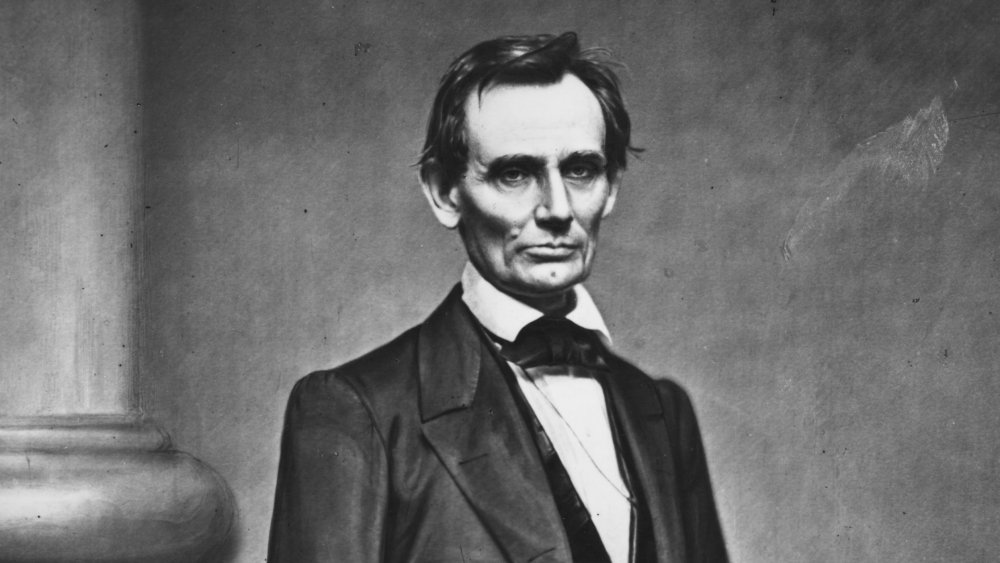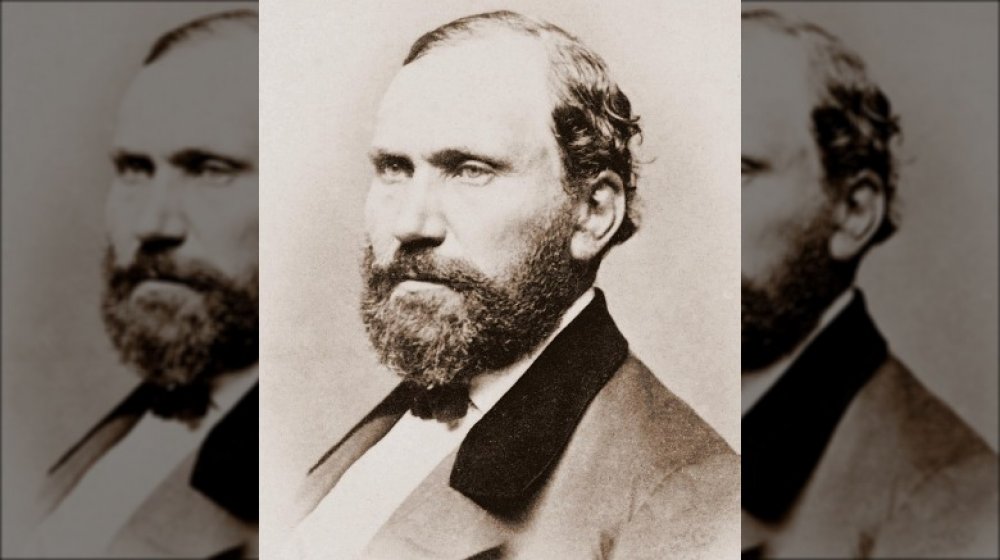The Truth About The Detectives Who Stopped A Lincoln Assassination Plot
In all of the history of the United States, by 1861 no one had successfully assassinated a president, let alone a president-elect. There had been attempts — Andrew Jackson, for one, lucked out when his assailant's pistols both misfired; Jackson returned the favor by using his cane to beat the man senseless. But no successes, if such a thing could be called a success. Yet many were passionately displeased by the nation's choice of Abraham Lincoln, as detailed by Smithsonian. The country was on the cusp of splintering into Civil War.
Initially it appeared that conspirators were going to disrupt rail lines running into Washington D.C., which coincidentally enough would also cripple the Union's ability to move troops and materiel should hostilities break out. It would also keep the president-elect from reaching the nation's capitol, throwing government into chaos. Secessionists would capture the city itself and destroy the rail lines, including that of the Illinois Central Railroad. But maybe — just maybe — they'd make a pass at killing Lincoln himself.
It wasn't going to be all that hard. Lincoln took public transportation out of Springfield, Illinois, where he'd been awaiting the election results. He boarded a train, bidding farewell to his friends and supporters from the rear platform. It was a more innocent time, in some ways; details of his itinerary en route to Washington were common knowledge, to the minute. Lincoln had already received numerous death threats by mail.
Allan Pinkerton founded a national detective agency
To foil the plot, the president of the rail line, Samuel Fulton, sent for the best: Allan Pinkerton, a Scottish emigrant and abolitionist, the first official detective of the City of Chicago and founder of the Pinkerton National Detective Agency, per PBS. Pinkerton and his operatives hit Baltimore and began to work, uncovering the plans already well underway. Lincoln would arrive in Baltimore, secured only by a small group of police; a disturbance would draw them away, the assassin would fire and easily escape in the crowd.
Pinkerton's plan was to alter Lincoln's itinerary, arriving in Baltimore ahead of schedule and unremarked, catching the conspirators off guard and unprepared. In addition, Lincoln would be partially disguised, by a shawl, an old overcoat, and a soft wool hat of the kind he'd never worn before. Pinkerton himself, along with one of his men, rode beside Lincoln.
The ruses worked. Lincoln's new train covered a remarkable distance from Philadelphia, delivering him earlier than previously announced, and at a different station. He made it to Washington and was sworn in on March 4, 1861. Years later, Pinkerton recalled the successful operation, as quoted by Smithsonian: "I had informed Mr. Lincoln in Philadelphia that I would answer with my life for his safe arrival in Washington," Pinkerton recalled, "and I had redeemed my pledge."

